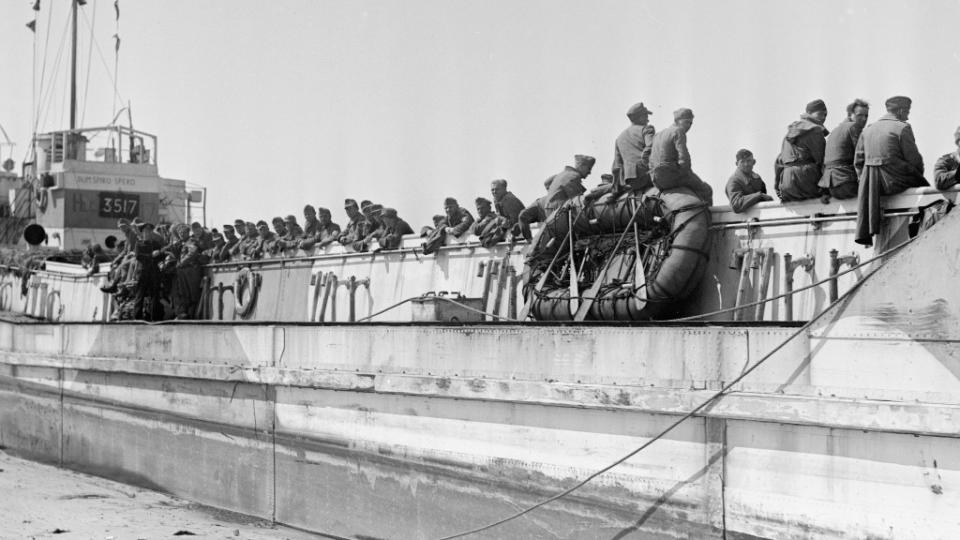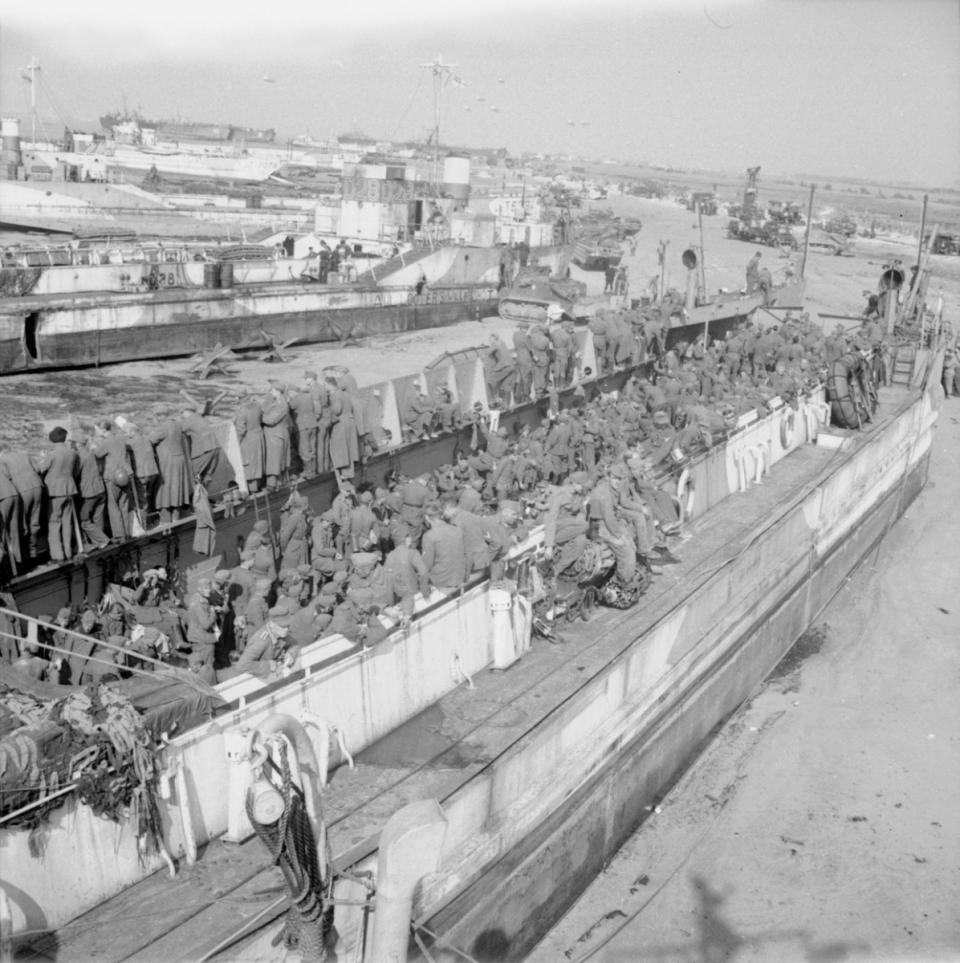Last surviving D-Day landing craft makes final journey to museum

The last surviving landing craft from D-Day has made its final journey to a museum following a remarkable restoration.
LCT 7074, a 193ft, 300-ton amphibious assault ship, was transported from the Naval Base in Portsmouth to the D-Day Story at nearby Southsea on Monday.
The vessel’s two-mile journey to its new home was called off on Saturday night due to high winds.
But it was finally able to be transported to the museum on Monday in front of hundreds of onlookers on the south coast.
LCT 7074 has undergone a full restoration at Portsmouth Naval Base which has cost £4.7m.


Nick Hewitt, head of collections and research at the National Museum of the Royal Navy, confirmed the vessel had reached the museum safely in the early hours of Monday.
He said: "Amazing! Lined up, smooth as anything. The comparison to last night is incredible. Now we wait for the tide to go out so she sits on the pad."
Read more: D-Day hero, 99, calls on public to clap for veterans on VE Day
LCT 7074 was raised in 2014 from the bottom of Birkenhead Docks, Merseyside, where she had sunk at her moorings after operating as a floating nightclub for years.
It will now be positioned outside the Southsea Museum and will have two Second World War Tanks reinstated on its tank deck.
Visitors will be able to go on board and see what life was like for the small crew of 12 who served on the vessel.

LCT 7074 was one of 800 landing craft involved on 6th June 1944 when 7,000 ships landed 156,000 troops onto the beaches of Normandy.
The LCTs, or landing craft tanks, were large and capable of carrying ten tanks or other heavy armoured vehicles into battle.
They were built quickly in sections and considered to have covered their build costs if they made one successful trip, so few survived beyond 1945.
LCT 7074 was commanded by a 20-year-old trainee solicitor from Swindon, Sub Lieutenant John Baggott, supported by the equally youthful Sub Lieutenant Philip Stephens, who kept a remarkable and vivid D-Day diary.

